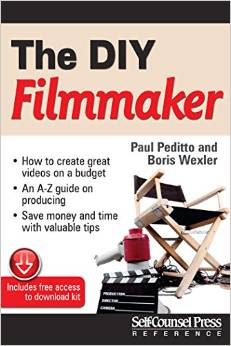It ain’t workin’. You knew it would take time, you’ve put in your dues, but MAN, that fab career in screenwriting just has not arrived. Is your blind belief in your abilities just delusion? You thinking of bailing? What can you do differently?

You might have fallen prey to one of these traps. Check it out…
1. NOT BRINGING YOUR A-GAME
Nothing derails a good idea so much as not being able to execute it. Before you start working on your screenplay, you must devise a way to find Energy. A-Energy, to be precise. Yeah, you’ve got the story down, it’s all mapped out. You’re ready to go, only…
When will you write?
You’re married with kids. You’re up at 7, shower, breakfast, out the door by 8. At the office 9-5. The office gets the A-Energy. You car or subway it home by 6. Dinner and miscellaneous with wife and kids takes you to 9pm. Finally, the day’s responsibilities are done! It’s screenplay time! You sit down at the computer and guess what: You’re played out! Eyes are closing. Zero energy. You bail on the writing, reach for the clicker and that TIVO’d SportsCenter, and crawl into bed by midnight. And like Jackson Browne said: “You get up and do it again.”
Life intervenes. This is not unknown to you. When it comes to writing your screenplay, one of the hardest things appears to be the easiest: Finding the time. Writing is a priority, but so is paying the mortgage. So you’re left with a riddle…

How will you find the time to write? Can you steal time at work? Will you write a couple hours a day, or five hours on Saturday? There is no one right answer, outside the necessity of energy.
I once read in Syd Field’s Screenplay: “You need two or three hours a day to write a screenplay.” Huh?! Wrong. What the Script God meant to say is it would be ideal if you had wealth enough to make writing your #1 priority. If you don’t and have to work for a living, does it mean you can’t write a screenplay? Of course not.

This is a process choice. How, and more importantly, when you write is up to you. So long as it gets done. So long as you bring energy. If that means only writing weekends when you’re free, or writing at 6am before work for a single hour or writing every fourth day–it doesn’t matter. As long as you’re not limping toward the computer. You need to game this.
Find Energy, you might write a good movie.

2. NOT KILLING THE PERFECTIONIST IN YOU
Don’t misunderstand: Being a perfectionist—wanting to nail down your screenplay—is a noble ambition.
What you don’t want, especially with a first (discovery) draft, is writing and rewriting and RErewriting those first 30 pages. Folks, I beg you: Do not censor yourself with the first draft. Say everything you want to say, no matter how many pages, and do not try to be too perfect with that first “vomit” draft. You want to push out. There will be time to refine. Critique upon critique will be coming at you. But that first draft—let that be yours. Let it all hang out and do not over-polish. Just push it out, push it out…
Remember the scene in Amadeus where Salieri gets his hands on Mozart’s manuscript pages to discover a miracle: No corrections! No changes! The music had come down “from God”, perfectly intact, from Mozart’s mind right to the page.
Good Reader, that ain’t you.
Let the first draft be yours. Say what you want to say knowing a rewrite will come. Don’t be too much of a perfectionist.

3. TAKING THE FIRST SOLUTION
You’re trying to figure out a major plot twist for your movie, but it won’t come. You think about it all day along. You set up in Starbucks, you brainstorm. Nothing comes. Finally, you’re at some Meineke Muffler shop and it comes to you: She’s her sister AND her daughter!
You found the solution. Too bad Chinatown already did the sister and daughter thing. You claim innocence. You weren’t even thinking of Chinatown when you came up with the idea! Doesn’t matter. It’s been done and you look like a thief or, at best, just foolish. Why? Because you took the first solution–which is almost always a cliche. Some movie you saw somewhere filtered into your subconscious and is coming out the other side in what you thought was an original solution. I always loved the Pixar 22 Rules Of Storytelling. #12 applies here:
“Discount the 1st thing that comes to mind. And the 2nd, 3rd, 4th, 5th – get the obvious out of the way. Surprise yourself.”
You try for days and days to find a solution to a scene but you’re stuck. You’re in the shower and the AHA! moment hits! Yes, that works! Get to the computer and write it down. It isn’t until a day or two later you realize they did the same thing in Clockwork Orange or SOMEWHERE else. It’s a drag, but the first solution is not to be trusted. Keep digging. You’ll be happy you did. And before we leave, from Pixar again, the way to find something new, original. #6 on the hit list…

“What is your character good at, comfortable with? Throw the polar opposite at them. Challenge them. How do they deal?”

4. GIVING IT TO MOM TO READ
Are you serious? You gave it to your mother? Unless Mom is an agent at William Morris Endeavor, I would seriously question the value of feedback coming your way. Soothing as matzo-ball soup, do you really need to hear her tell you how great your script is?
When you finish the first draft, try giving the script to an “inner circle” of people who will not bullshit you. You need people who know screenplays, who want to give you critique and know how to critique. Seek out professional help if necessary.
An actor friend was enrolled at the Royal Academy of Dramatic Art. I went to one of his productions one night. Backstage, afterwards, I relate how wonderful I thought was his performance. He thanked me for my praise and being a good friend, and then proceeded to ask what I really thought of the play. Without the bullshit. See the difference? Ego is one thing; the burning drive toward wanting to do good work is another.
God Bless Mom and her matzo-ball soup, but…don’t give her your script for critique.

5. SIX DEGREES OF SEPARATION
Comes time to sell your script, the spec screenwriter without an agent or manager is at a loss. Where the hell can she go to sell this thing?
The first question that needs to be asked is: Who do you know?
Six degrees of separation. 1: Do you know anyone in the business? Yes? Make the call, send the email, get them the script. You just put four months into writing it. You believe in it. Make the call. Get them the script.
If you directly don’t know anyone, do you know someone who knows someone?
Your brother sweep floors on the Paramount lot? Does he know anyone? Get him the script.
Your dentist’s assistant has a friend who works at a film production company? Get her the script.
Friend just won the Nicholl Fellowship and got signed with CAA? Get her the script. NOW.
Inside sales beats cold-calling, period. Before you write one query letter, before you cold-call production companies with a telephone pitch (and good luck with that), before you try screenwriting contests or Pitch Fests or Screenwriting Expos, ask yourself: Who do I know in the industry? Who do I know who might know someone?
This business is about relationships. It’s why people attend networking events. You owe it to yourself to make every contact you can make. Relationships are the key.
You’re bubble-person A in this chart. The script needs to get to bubble-person B to get your movie made. It’ll need to be read by every last bubble before that happens. Quite the journey! Time to start thinking about six degrees of separation.
Control what you can control.

